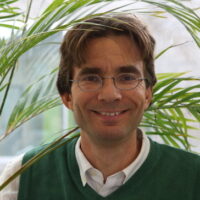The T cells of the adaptive immune system can be divided into the well-characterized αβ T and the less well understood γδ T cells, dependent of whether they express the αβ T cell receptor (TCR) or the γδ TCR. Recently, human Vγ9Vδ2 and other γδ T cell subsets have gained increasing attention, due to their capacity to recognize and lyse tumour cells in an HLA-independent manner. Since the γδ TCR is often involved in these processes, we aim here to obtain a detailed mechanistic understanding of the biochemical processes with which the γδ TCR transmits signals upon antigen-binding, i.e. the triggering mechanism of the γδ TCR. Thus, we will systematically analyze whether signalling events that are crucial for triggering the αβ TCR are also operative in γδ T cells in work package A. These are antigen-induced clustering of the γδ TCR, CD3 conformational changes in the γδ TCR, phosphorylation of CD3 in the γδ TCR and coupling to downstream signalling pathways.
We reconstitute the γδ TCR in TCRαβ-negative αβ T cells, to focus on differences between these receptors and not on differences in the cellular context, and apply sophisticated biochemical and synthetic biology approaches. The main results are validated in short-term expanded γδ T cells from human blood.In work package B, we use these novel insights for a translational purpose, namely to enhance the tumour killing activity of γδ T cells upon γδ TCR triggering by tumour antigens.
Our recent finding that stabilization of the active CD3 conformation in the γδ TCR enhances tumour lysis, is a starting point. Here, we engineer novel recombinant, monovalent anti-γδ TCR antibody variants that stabilize the active CD3 conformation. Using different tumour cells, such as melanoma, pancreatic and ovarian cancers as well as B cell lymphomas, we test in vitro whether the antibody variants indeed increase tumour lysis by short-term expanded human γδ T cells. This project is part of the application for a Research Group FOR2799 “Receiving and Translating Signals via the γδ T Cell Receptor”.

